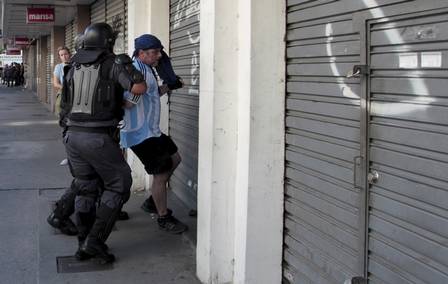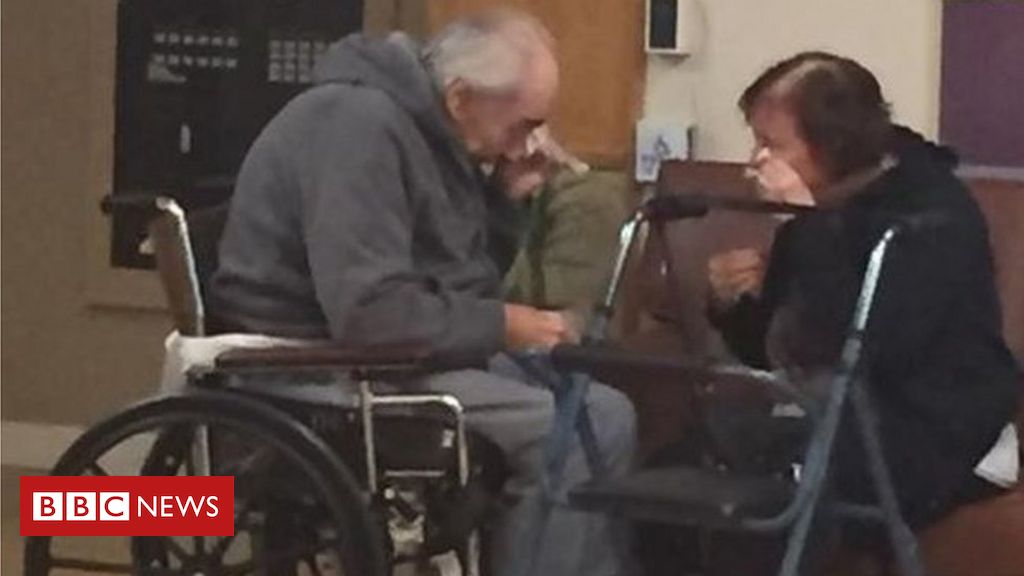Canadian filmmaker Jason O’Hara was assaulted by a military police officer Sunday afternoon while covering a protest in Praça Saens Pena, in Tijuca, a northern district of Rio de Janeiro. The documentary filmmaker also reported having a camera stolen by a police officer. In a video from the newspaper A Nova Democracia, the prime minister can be seen kicking him. Look here.
“I was robbed by a policeman. (I had a) GoPro, he took it away, and now I don’t have one,” O’Hara says in the report. “They are there to protect me, but there is no way,” he summarizes. The filmmaker was also taken to the Souza Aguiar Municipal Hospital. The municipal health department was contacted by the EXTRA report, but has not yet provided information on his health status.
The military police said in a statement that the complaints and footage will be investigated by the agency’s internal affairs department. The municipal health ministry said the filmmaker had already been released.
O’hara has already made a documentary about the installation of pacification police units in Rio, “Rhythms of Resistance,” and is currently producing another feature film about the eviction of residents because of the 2014 World Cup and the 2016 Olympics.
Demonstration
O’hara’s case was not an isolated one. To prevent the group of about 300 people gathered at the demonstration from heading towards Maracanã, dozens of military police surrounded Saens Pena Square and dispersed the protesters with tear gas and batons. Several protesters and journalists who followed the demonstration were attacked by police or injured during the prime ministers’ actions.

According to the Rio de Janeiro Journalists’ Union, at least 15 journalists and communicators were injured during the demonstration. “Press professionals and about 200 demonstrators were prevented from leaving Plaza Saens Peña for two hours. This group had to face, without the possibility of refuge, physical aggression and the effects of tear gas bombs,” the union’s report states.

MP Note
“The Military Police recognizes the importance of the work of journalists as a basis in a democratic country, in the recording and dissemination of information, especially during a historic event like the World Cup.
The constitutional right of the population to demonstrate was guaranteed, with the need for a blockade in the specific case of Tijuca. Intelligence data showed that this group intended to head towards the entrance of the Maracanã, thus endangering the safety of thousands of fans.
Six people were taken to the police station. Gas bombs had to be used to disperse some of the protesters who broke down the metro doors.
All complaints and images received regarding excessive action by the military police will be forwarded to the Department of Internal Affairs and investigated.“.

“Typical thinker. Unapologetic alcoholaholic. Internet fanatic. Pop culture advocate. Tv junkie.”


:strip_icc()/i.s3.glbimg.com/v1/AUTH_da025474c0c44edd99332dddb09cabe8/internal_photos/bs/2023/D/n/i7eIkcQsAB0YgsWKDQMw/whatsapp-image-2023-03-08-at-10.48.49.jpeg)




:strip_icc()/i.s3.glbimg.com/v1/AUTH_63b422c2caee4269b8b34177e8876b93/internal_photos/bs/2021/T/V/IFkavRRSSjHCBPZfqVXw/ap21313490536644.jpg)